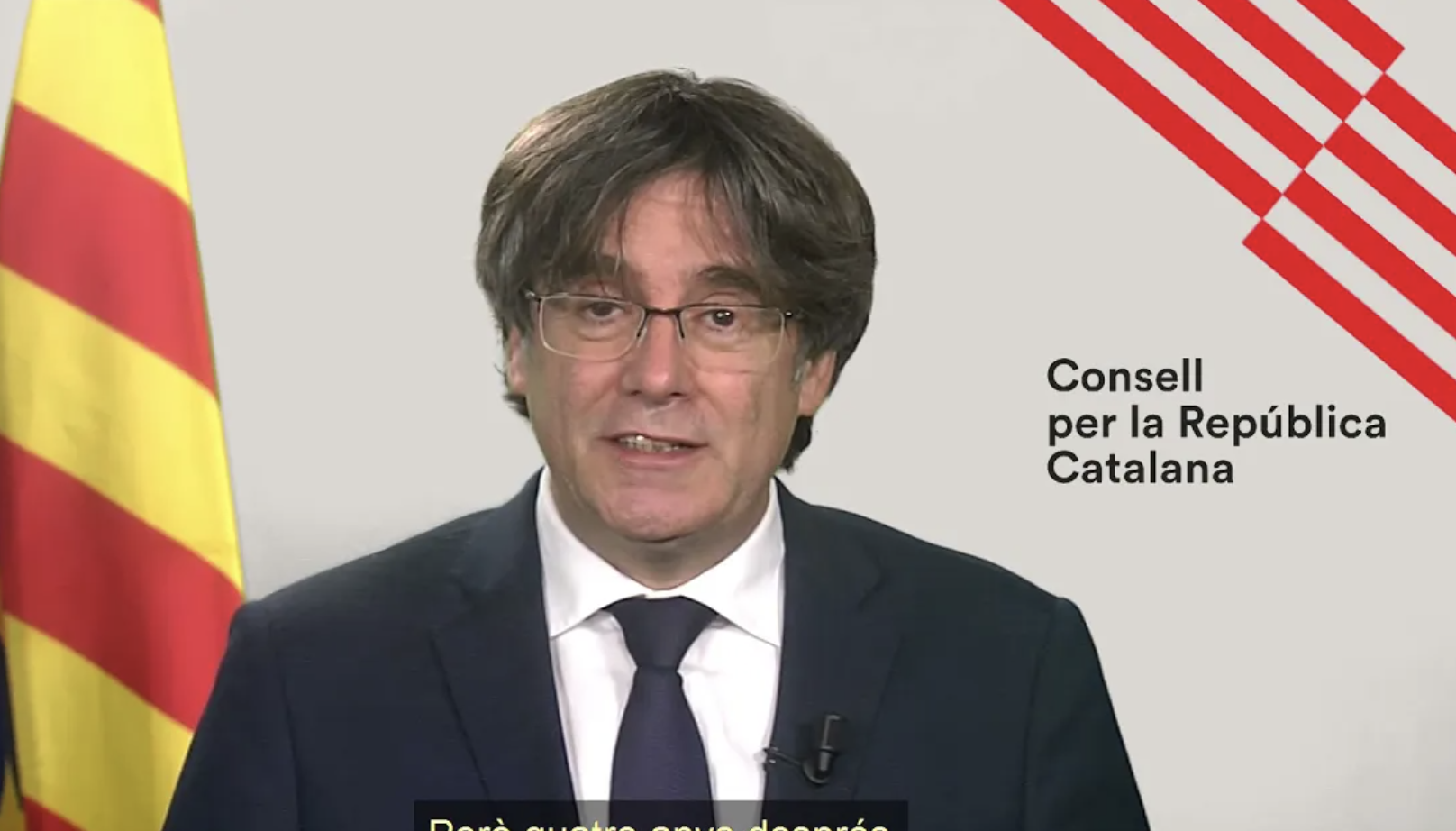The Catalan president in exile, Carles Puigdemont, has used the commemoration of the fourth annversary of the Catalan independence referendum of 1st October, 2017, to defend the persistence of exile and the role of the Catalan exile body, the Council for the Republic. "These four years have shown that there is a path, that we have continued on the path, and that there are forms of victory that are in our hands," said Puigdemont in a message on the occasion of the 1st October referenfum, which was published at 9pm this Thursday night.
In the video, in front of a Catalan senyera flag and a European flag, and with the Council for the Republic logo as a background, Puigdemont warns that the survival of Catalonia as a nation is only possible as an independent state. "All past and present [Spanish] regimes have taken it on themselves to demonstrate that Catalonia will never be accepted as a nation within the Spanish state," he said.
Given the hostility of the state, he says that the independence movement has shown persistence and that part of the government embarked on the path of exile in 2017 to maintain "the dignity of the institutions dissolved by Article 155 and the Spanish king's speech" as well as "the legitimacy of the decision taken by the people of Catalonia in a referendum".
Council for the Republic
"It hasn't been easy. And sometimes it hasn't been pleasant either," he confessed. However, he said that four years later, that persistence has a name, which is that of the Council for the Republic. He says that the Council is "the institution that was born in response to the Spanish state's attempt to liquidate the referendum and its political consequences."
Previously, Puigdemont has stressed that, on 1st October, the independence movement had to overcome fear and anger in all the threats that were made to the movement, and this made it stronger. But it also had to beat division. "We defeated division and we went to the referendum polls to vote together. And that definitely made us winners," he declared. He underlined the peaceful resistance of that day and the "historic victory" in the face of the temptation for division, which ended up making the 1st October an "international benchmark".
On the other side, he stated that in these four years the Spanish state "has persisted in its repression without fail", and that this has been done by the three successive governments that have held power in the Madrid in this time, one by the PP, a second, the PSOE and the current PSOE-Podemos executive, who have not provided "any specific and ambitious political project" to resolve the conflict with "courage and honesty."
Puigdemont warned that in relation to Catalonia, the Spanish state has only one main objective, "which is to liquidate the nation". "Eliminate, reduce or diminish those elements that make us as a nation, from the migration of the self-government of our historical institutions to the Catalan language, through the economic and social model, to turn Catalonia into an administrative region, docile to the state and the monarchy, submissive to a regime, that of 1978, which today cannot disguise the caricature it has become,” he added.
The Transition, a rebranding
He criticized the Spanish government for describing the Via Laietana police station in Barcelona as an example of a public service that has strengthened democracy, which "is not just a historical falsehood and a serious insult and offence to the memory of so many victims" of the repression that was committed", but also "the most stark confession of the deception of the Transition as a method to overcome Francoism". Puigdemont ruled that the Transition was "a great rebranding."
Faced with this objective of the Spanish state, he warns that the survival of Catalonia as a nation is only possible as an independent state. "All past and present regimes have been responsible for showing that Catalonia will never be accepted as such within the Spanish state," he said.
In the main image, Carles Puigdemont during his message to mark the 1st October referendum anniversary

